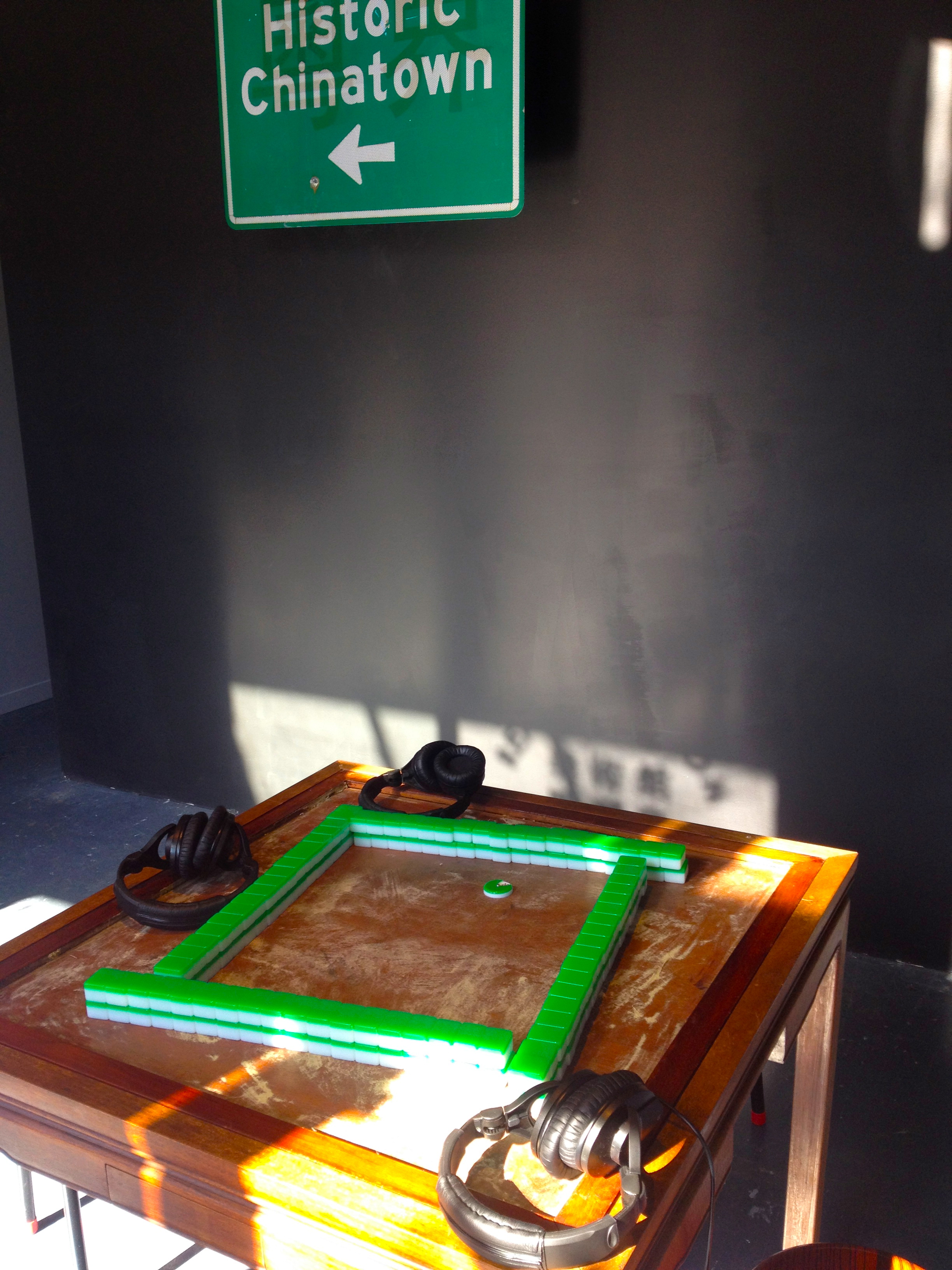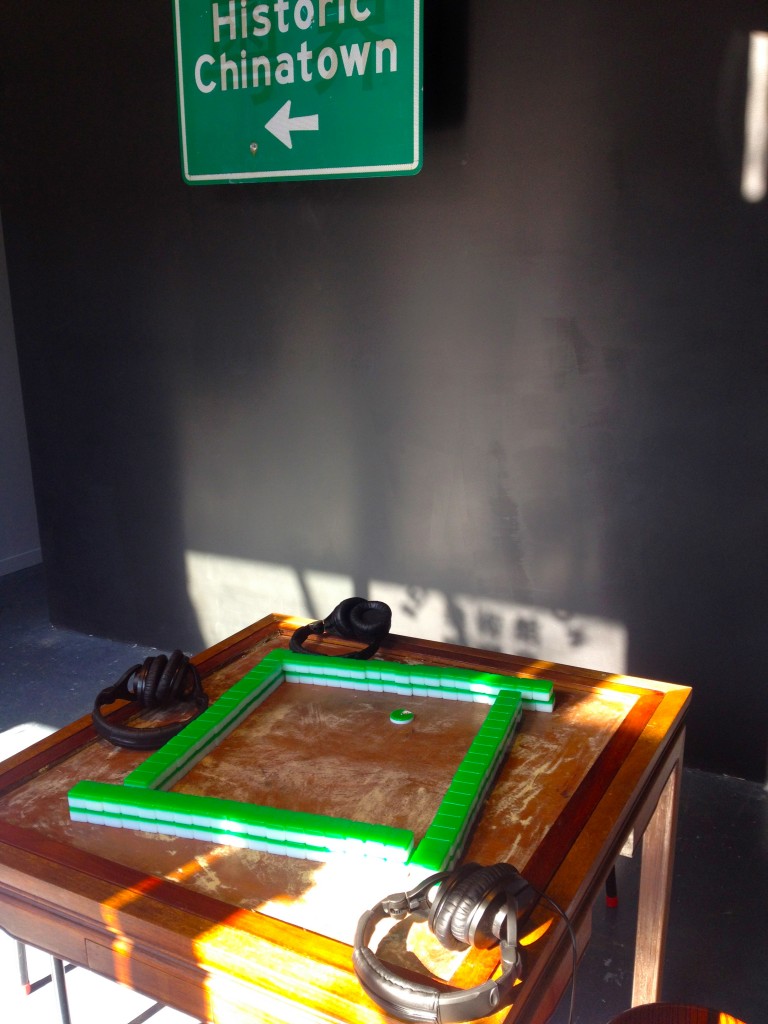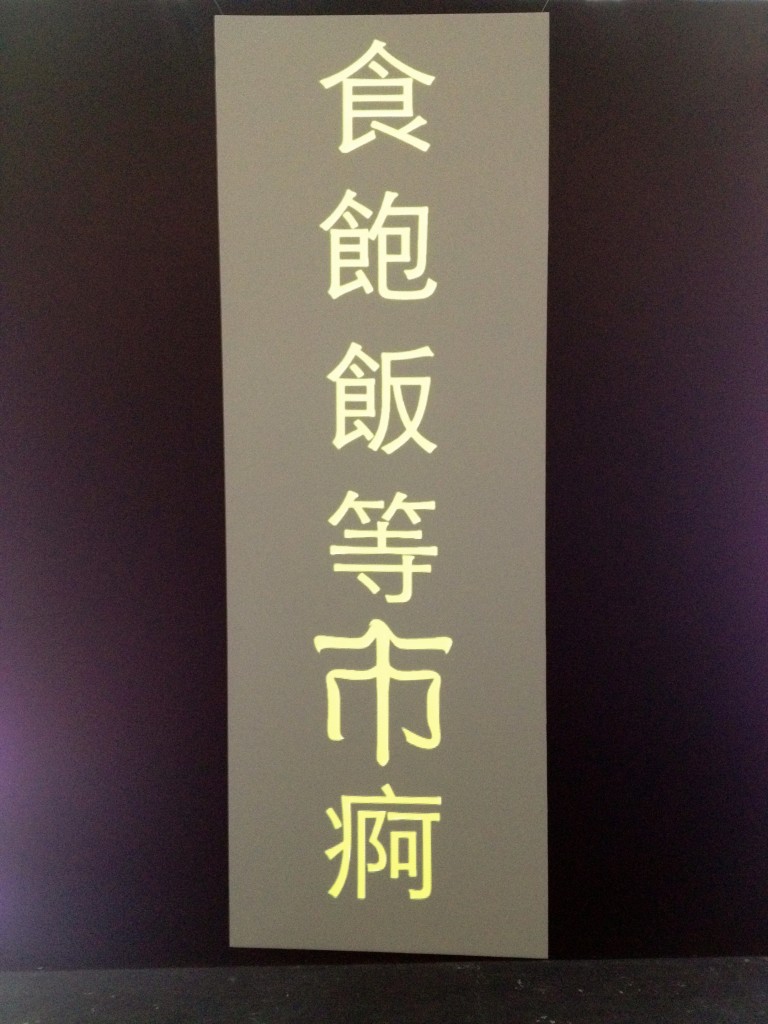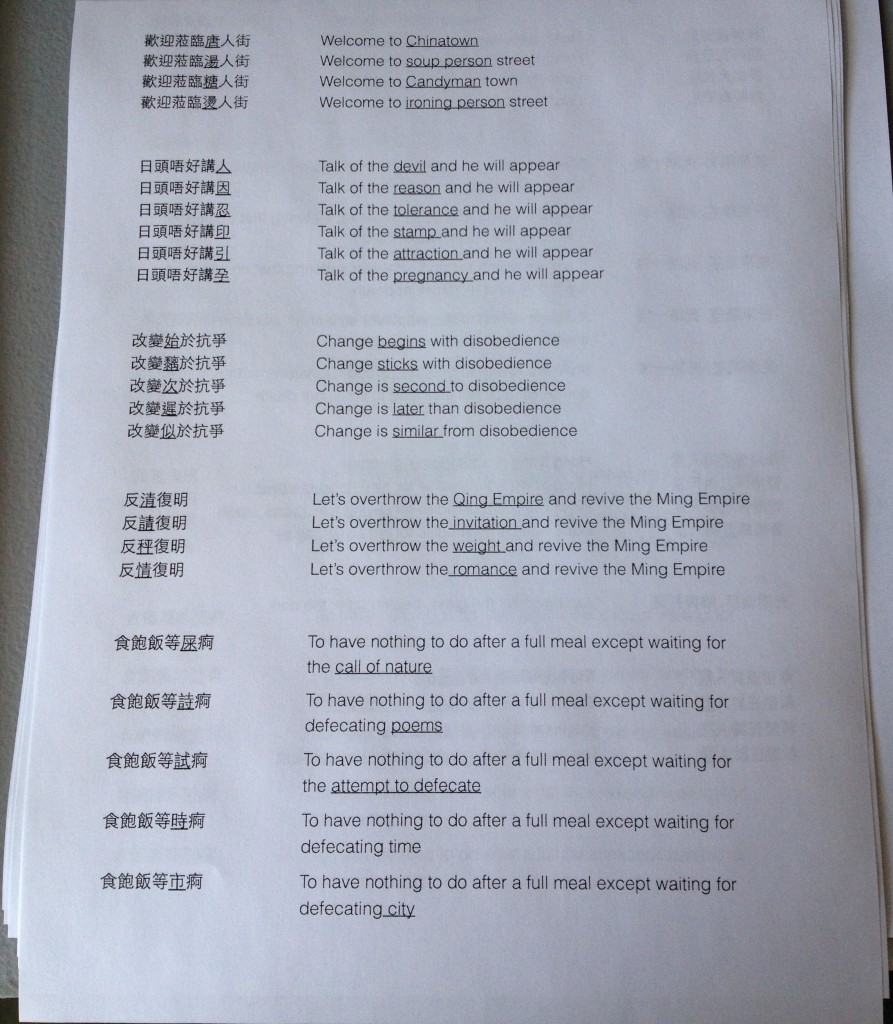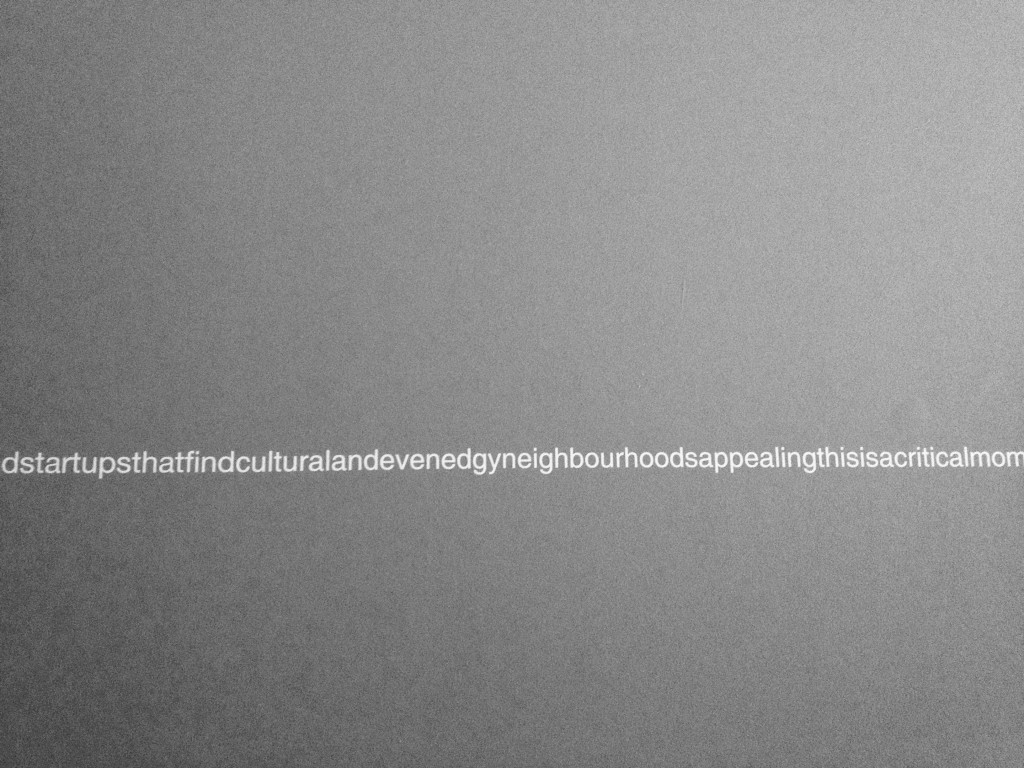Playful linguistic subversion at Centre A’s “transgression/cantosphere”
transgression/cantosphere, presented at Vancouver’s Centre A gallery, is the newest exhibition by the Vancouver-based interdisciplinary artists company Hong Kong Exile (composed of Milton Lim, Remy Siu, and Natalie Tin Yin Gan), in collaboration with linguist Zoe Lam and artist Howie Tsui. Through an audiovisual “celebratory engagement with Cantonese language,” (transgression/cantosphere pamphlet) the artists react to the growing Mandarinization and Westernization in Chinatown, reflecting on its significance within larger questions of gentrification, global capitalist market forces, cultural preservation, and the marketability of “multiculturalism.”
One of the first things one sees when walking into the small space that is the Centre A gallery is the mahjong table on the right side of the room. Sitting at the table and putting on the headphones one hears the voice of a woman teaching a student Cantonese words on the tiles. Becoming a sort of voyeur in this moving private moment of teaching, one can’t help but think of the various ways language is taught to us throughout our lives. In environments where language (and therefore culture and heritage) is threatened can even a playful game become a site of protest, a political act?
The following thing that stands out is the large road sign on the wall pointing towards “Historic Chinatown.” What might seem like an ordinary sign takes on multiple meanings in this context. As we tentatively walk to the other side of the wall, the artists seem to be asking us to think about who this sign is for. In terms of directing newcomers to an area, what are the implications of the term “historic” – especially in the context of the marketed “museafication” of Chinatown for a “predominantly white creative class” (transgression/cantosphere pamphlet)?
In the other room is a screen projecting Cantonese text over a voice which spells out the sentences. The text is separated into five stanzas, each stanza starts with a sentence followed by multiple sentences where one of the characters is changed, which completely alters the meaning of the beginning phrase. For example, the first sentence projected in the picture above is “To have nothing to do after a full meal except waiting the call of nature.” This gets turned into “To have nothing to do after a full meal except waiting for defecating poems,” and so on. Similar to the mahjong table, this seems to reflect the artists’ belief in the use of language to undermine, subvert, and fight against linguistic and cultural pressure. For the Cantonese-speaking visitor, these rewording exercises might feel like a playful form of linguistic empowerment and protest. As an English speaker, the translation sheet allows one to follow and appreciate the linguistic work being done, yet while being acutely aware of the limits of translation in terms of feeling and affective reaction to what is being said. In an “officially English” city, and considering the growing Anglicization of Chinatown that comes with gentrification, the work being done here seems important in terms of troubling English linguistic dominance. The English speaker here is not in control but rather is forced to listen to the Cantonese speaking back to them.
The English we see is the text sprawled along the three grey walls surrounding the screen, a selection of text from the City of Vancouver’s Chinatown Economic Revitalization Strategy of 2012. Compressed without punctuation or spaces, the reader struggles to discern what is being said. In this satirical developers’ stream-of-consciousness style, the artists yet again use play and language to undermine the authority of the text – making the audience think of some of the absurdities of what is written on the wall and question the heavily marketed rhetoric of urban development we are often fed.
Though deceptively minimalist in its production, transgression/cantosphere is a powerfully haunting and subversive exhibit that opens itself to various critical interpretations, of which its exploration of the nature of linguistic play as protest is one example.
The exhibit runs until March 28, 2015, Tuesdays to Saturday from 11am to 6pm.
Sources: transgression/cantosphere exhibition pamphlet. 2015. Print.
